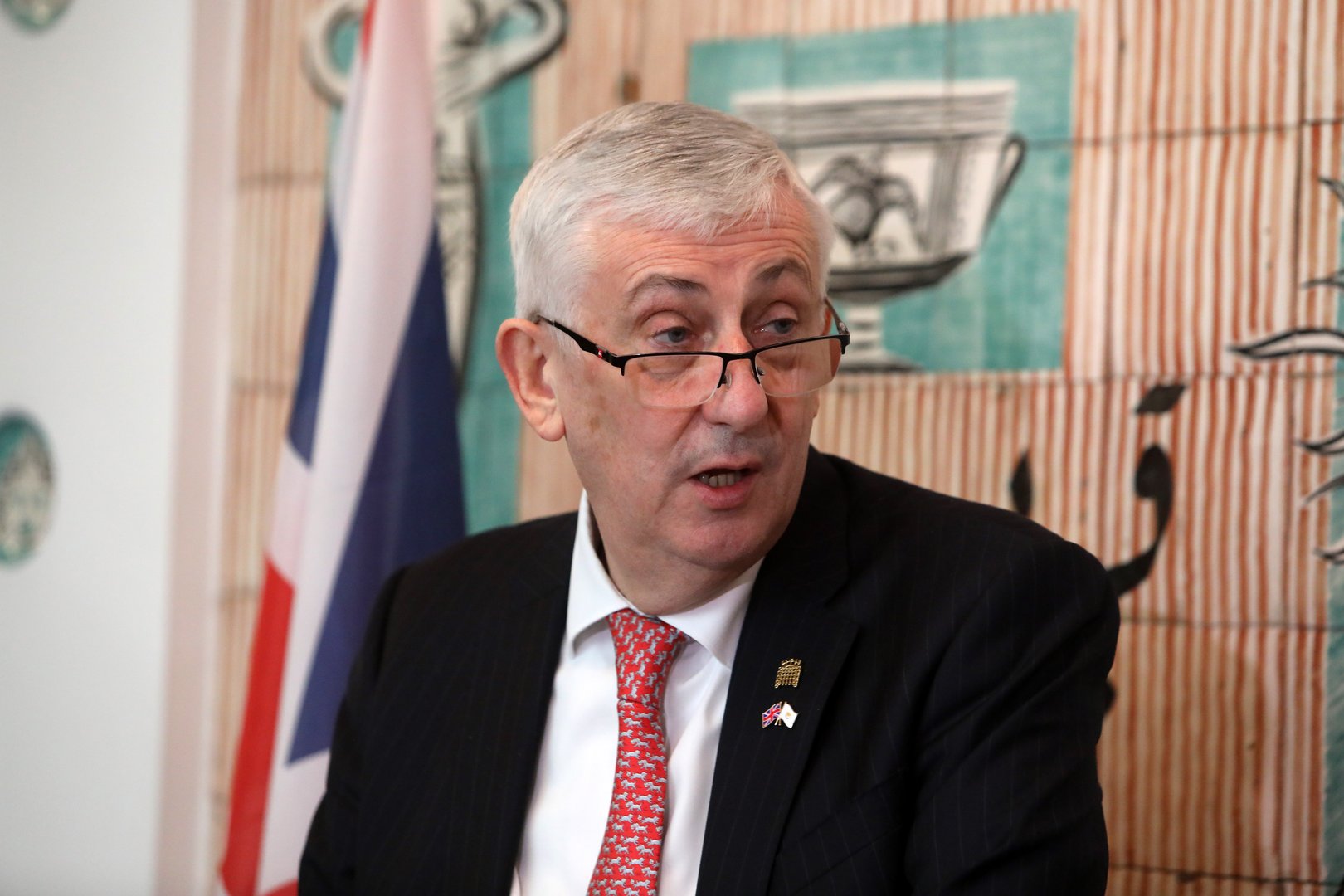Speaker of the British House of Commons Sir Lindsay Hoyle has told the Cyprus Mail that he hopes the Cyprus government would reconsider its decision to stop British residents from voting and standing in local authority elections.
The decision, a consequence of Brexit, has caused uproar among British permanent residents in Cyprus who have been living here for decades. Sir Lindsay said he felt sympathy for them although he made a point of saying that he never got involved in other countries’ politics.
“I think it is not good that people here that participate in the economy, that have been elected and represented are suddenly having their franchise taken off them,” he told the Cyprus Mail during his official visit to Cyprus last week.
“It would be nice if the Cyprus government would reconsider its decision, because in the UK we allow Cypriots to vote; why not replicate a good practice?” he said.
He thought it was right that Cypriots living in the UK had the vote and felt that in local government, in particular, people wanted to help make a difference.
“You have some great people here – expats that live here, are part of the community, investing in the community, that want to live in the community, so why not allow them to vote?”
On his first official visit as speaker, Sir Lindsay said he had “an affinity and a great love for Cyprus,” which he had visited in the past.
He was the first serving speaker of the Commons to come to Cyprus officially, describing this as “ground-breaking” and said it was a privilege to address the plenum of the House of Representatives. It was his first speech in another parliament as speaker.
He laughed on being told that a former president (Demetris Christofias) had referred to Britain as “our bad demon”, and said: “It is such a bad demon that there are 300,000 Cypriots living in the UK.”
He did, however, during his contacts, “have a little feel” for the negative attitude towards Britain’s stand on the Cyprus problem, insisting that the UK government had a position that had never changed. He preferred to focus on what he called the “special relationship” between the two countries.
“It is a special relationship, with 50,000 UK citizens living in Cyprus and 300,000 Cypriots in the UK,” he told the Mail. “Politically, it may rumble, now and again, but under that there is this special relationship between Britons living in Cyprus and Cypriots living in the UK. That is one of the great benefits, and of course we are all part of one big family – the Commonwealth that also binds us together.”
The presence of the British bases was also raised during his meetings in Cyprus, with people asking him if there was a benefit to having these bases. He had no doubt that they were a good thing for Cyprus.
“I think having the bases brings security to Cyprus and also helps the economy as it contributes between one and two per cent to GDP,” he explained. “I would never sniff at that personally.”
The bases had service contracts of €80 million and they would be upgraded. The construction of new buildings, which he said, would be a “massive construction job, which means a lot of local employment and the money will go straight into the economy.”
He also gave the example of Gibraltar. While Britain did not pay anything for the bases, seven per cent of its GDP came from the UK’s Ministry of Defence. There was real input into the economy from the bases, he said.
“I wish I had a base in my constituency generating income,” said the speaker and MP for Chorley, Lancashire.







Click here to change your cookie preferences